#philippe vi
Photo

Edward III, King of England, paying homage to Philippe VI, King of France.
#edward iii#plantagenet dynasty#philippe vi#maison de valois#valois dynasty#middle ages#suseran#vassal
6 notes
·
View notes
Text
The Medieval Forest
The face of Christian Europe was a great cloak of forests and moorlands perforated by relatively fertile cultivated clearings. It was rather like a photographic negative of the Muslim east which was a world of oases in the midst of deserts. In the near east timber was rare, in the west it was plentiful; in the east trees meant civilization, in the west barbarism. A religion born in the east under the shelter of palms made a way for itself in the west at the cost of trees, for these were a refuge of pagan spirits and were pitilessly attacked by monks, saints and missionaries. Any progress in medieval western Europe meant clearings, struggle and victory over brushwood and bushes, or, if it was necessary, and if tools and skill permitted, over standing trees, the virgin forest, the "gaste forêt" of Percival, or Dante's selva oscura. What in fact was striking about the medieval topography was that it was a collection of greater or smaller clearings. It was made up of economic, social and cultural cells. For long the medieval west remained a collection, juxtaposed, of manors, castles, and towns arising out of the midst of stretches of land which were uncultivated and deserted. Moreover the word 'desert' at this time meant forest. It was there that the practitioners of fuga mundi, willing or unwilling, took refuge: hermits, lovers, knights-errant, brigands and outlaws.
Thus we find St Bruno and his companions in the "desert" of the Grande Chartreuse and Robert of Molesmes and his disciples in the "desert" of Cîteaux, and Tristan and Iseult in the forest of Morois ('"We return to the forest which protects and guards us. Come, Iseult, my love!"… they went into the tall grass and the bracken, the trees closed their branches over them and they disappeared behind the foliage.') Similarly the adventurer Eustache le Moine, the precursor of and perhaps the model for Robin Hood, took refuge in the woods of the Boulonnais at the start of the thirteenth century. As a place of refuge, the forest had attractions. To the knight it was a world of hunting and adventure […]

For the peasants and a mass of poor working people it was a source of profit. Herds and flocks went there to feed. Above all pigs were fattened there in the autumn. They were a source of wealth to the poor peasant; after the acorns had fallen he would kill his pig, which was a promise of subsistence if not of plenty for the winter. In the forest wood could be cut which was indispensable to an economy that for a long time was short of stone, iron, and coal. Houses, tools, hearths, ovens, and forges, could not exist or operate without wood or charcoal. Wild berries could be picked in the forest; they were an essential contribution to the limited diet of the peasant, and were the main chance of survival in times of dearth. Oak bark could be stripped off for tanning and potash could be made for bleaching and dyeing. Above all, resinous products could be collected for torches and candles, and honey, so sought-after in a world for long deprived of sugar, could be taken from wild swarms. At the start of the twelth century, the anonymous French chronicler- Gallus Anonymus- who had settled in Poland, listed the advantages of that country, mentioning its silva melliflua or forests rich in honey immediately after the healthy air and the fertile soil. Thus a whole army of shepherds, wood-cutters, charcoal-burners (Eustache le Moine, the 'forest bandit', accomplished one of his most successful pieces of brigandage disguised as a charcoal-burner), and gatherers of wild honey, lived off the forest and provided for the sustenance of others. These poor people liked poaching too, but game was first and foremost a product of the chase, which was reserved for the lords. Thus, from the smallest to the greatest, the lords jealously defended their rights over the riches of the forest. The forest baillifs were always on the look out for scrounging villains. Kings were the greatest lords of forests in their realms and energetically endeavoured to remain so. For this reason the rebellious English barons imposed a special Forest Charter on King John in 1215 in addition to the political Great Charter. When, in 1328, Philip VI of France had an inventory drawn up of the rights and resources with which he wanted to constitute a dowry in the Gâtinais for Queen Jeanne of Burgundy, he had a valuation of the forests drawn up separately. Their profits made up a third of the whole of the income from this lordship.
Yet the forest was also full of menace and imaginary or real dangers. It formed the disquieting horizon of the medieval world. The forest encircled the medieval world, isolated it, and restricted it. It was a frontier, the no man's land par excellence between countries and lordships. Hungry wolves, brigands, and robber-knights could suddenly spring out of its notorious dark depths […]
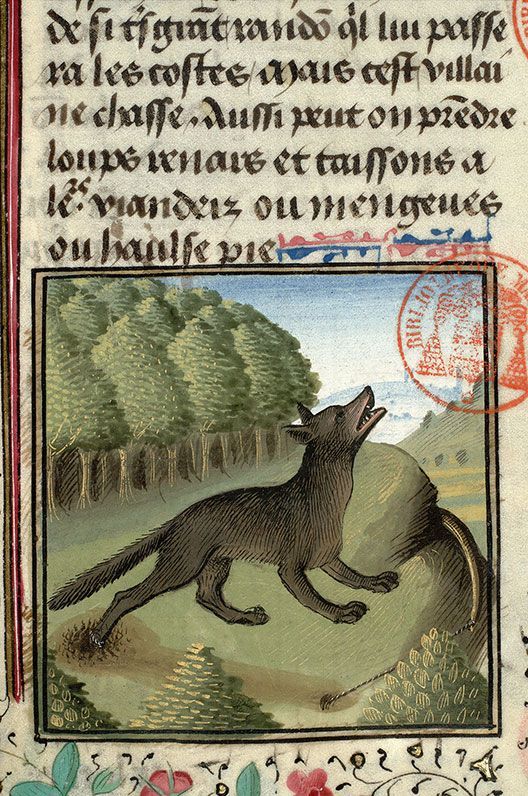
It was easy for the medieval imagination, drawing on an immemorial folklore, to turn these devouring wolves into monsters. In how many hagiographies do we encounter the miracle of the wolf tamed by the saint, such as Francis of Assisi subjugating the savage beast of Gubbio […] Sometimes the forest harboured even more bloodthirsty monsters, which had been bequeathed to the middle ages by paganism, such as the Provençal tarasque subdued by St Martha […]
And yet, even if the horizon of most men in the medieval west, sometimes for the whole of their lives, was the edge of a forest, we must not imagine medieval society as a world of stay-at-homes and stick-in-the-muds who were attached to their patch of ground surrounded by wood. The mobility of men in the middle ages was extreme, even disconcerting, but it is easily explained.
Jacques Le Goff- Medieval Civilization, 400-1500 AD
#middle ages#jacques le goff#medieval civilization 400-1500 ad#saint bruno#robert de molesmes#eustache le moine#jean sans terre#philippe vi#jeanne de bourgone#saint françois d'assise#la tarasque
26 notes
·
View notes
Text






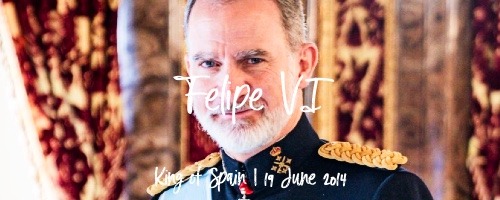


Monarchs of most of Europe (as of 14 January 2024)
#King Carl XVI Gustaf#King Harald#Grand Duke Henri#Prince Albert II#King Willem Alexander#King Philippe#King Felipe VI#King Charles III#King Frederik X#Sweden#Norway#Luxembourg#Monaco#The Netherlands#Belgium#Spain#Britain#Denmark#2024
122 notes
·
View notes
Text

#hundred years war#art#medieval#middle ages#france#england#knights#knight#soldiers#soldier#armour#banner#standard#pennant#history#europe#european#english#french#edward iii#philip vi#john the good#john ii#jean le bon#philippe de valois#edouard iii d'angleterre#battle of crécy#battle of poitiers#warfare#battle
28 notes
·
View notes
Text

“So far during his decade-long reign, Felipe has only awarded the Golden Fleece to Leonor. I think Charles would receive it if the previously rumored British state visit to Spain pushes through. I believe he's won't award it to monarchs in countries where the previous monarch is still living. Beatrix, Albert II, and Margrethe II are all Knights of the Order of the Golden Fleece and although they abdicated are still alive so I doubt Willem-Alexander, Philippe, and Fredrick will receive it anytime soon.” - Submitted by Anonymous
8 notes
·
View notes
Text
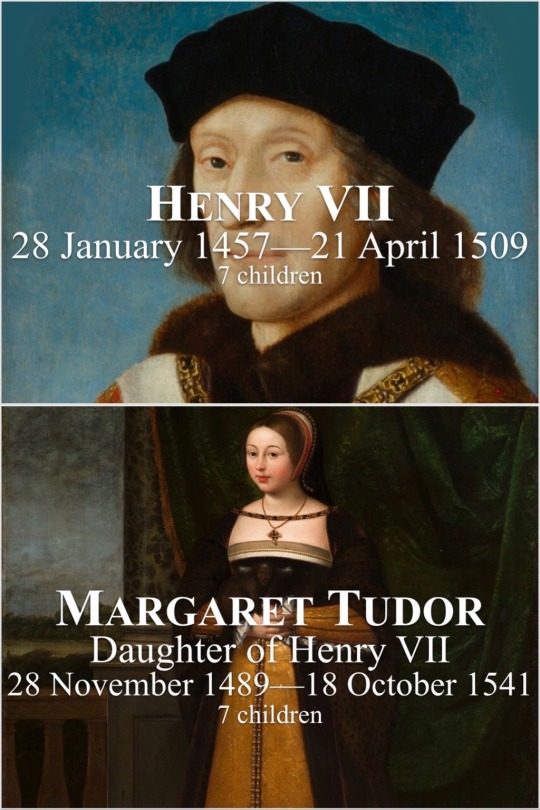



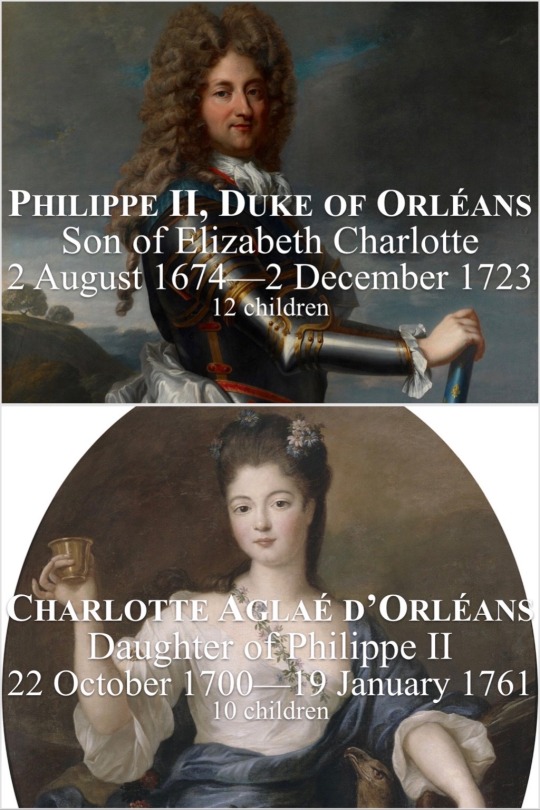
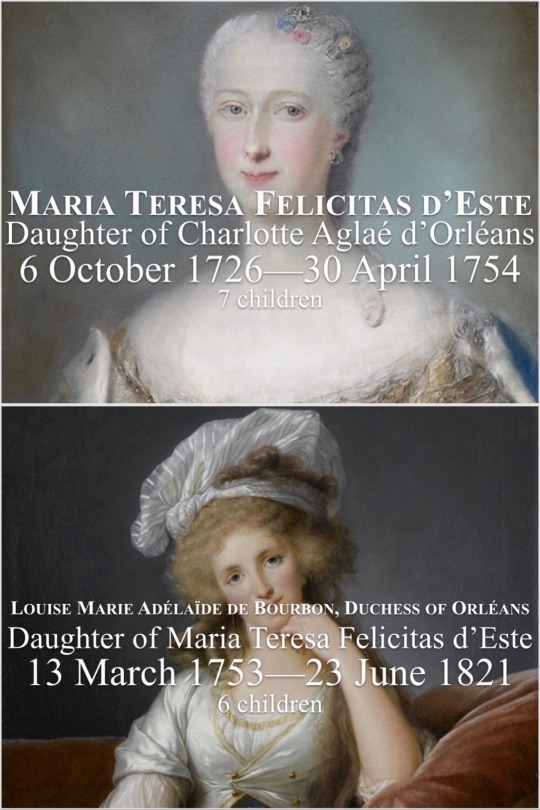

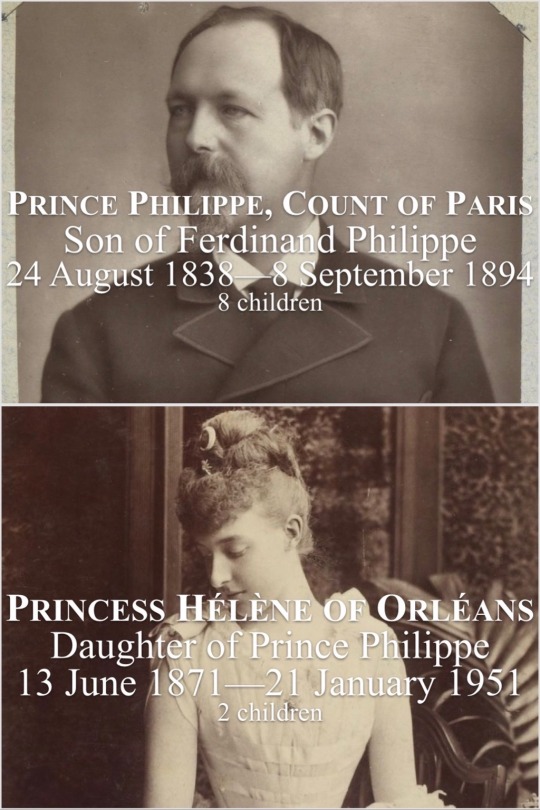
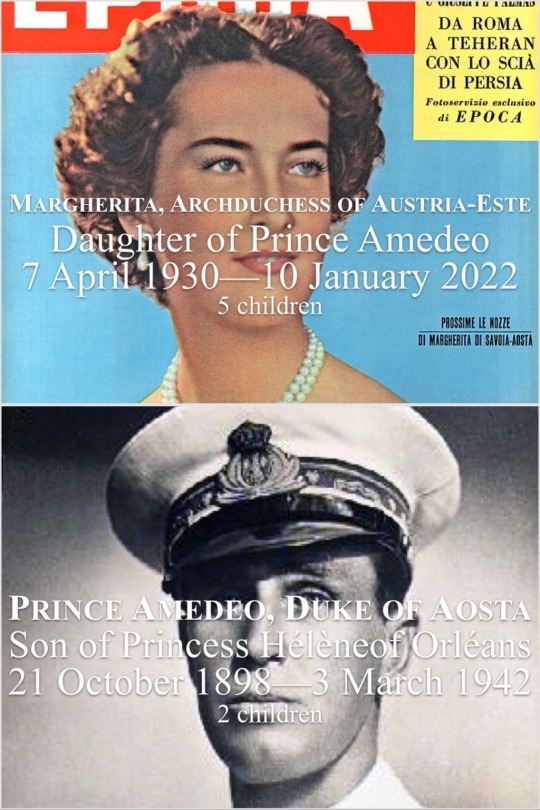

Descendants of the Tudors
#descendants of the tudors#henry vii#margaret tudor#james v#mary queen of scots#james vi and i#elizabeth stuart#charles i louis#elizabeth charlotte madame palatine#philippe ii duke of orléans#charlotte aglaé d’orléans#maria teresa felicitas d’este#louise marie adélaïde de bourbon#louis philippe i#ferdinand philippe duke of orléans#prince philippe count of paris#princess hélène of orléans#margherita archduchess of austria este#prince amedeo duke of aosta#prince lorenz#princess laetitia maria
4 notes
·
View notes
Text
Historical figures should try being named something other than Louis. Especially the french ones. It's very rude of them to confuse us by all having the same name like that
#king louis I#king louis II#king louis III#king louis IV#king louis V#king louis VI#king louis VII#king louis VIII#king louis IX#king louis x#king louis xi#king louis xii#king louis xiii#king louis xiv#king louis xv#king louis xvi#king louis xvii#king louis xviii#louis philippe#louis philippe ii#louis napoleon#louis kosuff#all the gooddamn louis tagged for demonstrative purposes#there are more though
9 notes
·
View notes
Text
@balldwin said: [ BEHIND ]: upon entering the same room as the receiver, the sender steps behind them, and winds their arms around the receiver’s waist, drawing them close against them.
Perhaps because he is the lord of his own demesne, he doesn’t knock when he enters, or announce himself beforehand—he simply opens the door and steps inside, ignoring the various noises of surprise and, in the case of one of the maids fluttering around her, outright disapproval. For her part, Astoria only spares him a smile and a raised eyebrow over her shoulder.
She knows that look—moreover, she knows not to argue with it. “Excuse us, please,” Astoria instructs, already taking a polite step away and waving a hand vaguely towards the door. When one of the maids, a woman in her forties with a particularly earth-shaking scowl, opens her mouth in protest, he cuts in before she can, voice smooth and sharp at once.
“No need for you to dress her when I’ll be undoing all your work in a moment,” he says with the arrogant nonchalance of the obscenely wealthy and spectacularly powerful; one of the younger maids lets a giggle escape before slapping a hand over her mouth in embarrassment, and eventually all three of them have filed out of the room. Even before they’ve closed the door behind them Baldwin is behind her, hands settling at her sides, nose tucked in her loose hair; they are, as ever, a picture of perfection, wedded bliss to an extreme. It had been at once brilliant and impossibly stupid of her to recommend marriage as a cover a decade before and she is suffering for it now, all too aware of the way his fingers fit against her ribs, their skin separated by only the thin layer of her shift.
He should step back once the door has closed and there’s no audience for whom he could continue the charade. He doesn’t. Astoria is absurdly grateful for it. “You’ll have to lace me into my corset,” she says after a beat. “I can’t do it myself.” But the last thing Baldwin seems interested in is giving her more layers; instead, he lets one of his hands skim across her abdomen, low over her stomach, before settling on the opposite hip, and he tugs her closer to him until her back is flush against his chest. He lifts his other hand, a small, folded square of paper between his fingers. When she takes it and opens it, he lifts his head to read over her shoulder, his newly-freed hand mirroring the first before settling against her side.
“You made an impression on my father,” he observes dryly, and Astoria lets out a spectacularly graceless snort of laughter as she reads.
“A good impression,” she retorts, and Baldwin doesn’t argue. She’ll count that as a victory. “I confess, though—when he said I might be useful I expected something a bit more... clandestine, I suppose, than this.”
Perhaps she’s getting used to him. She’s managed to maintain her composure, which is a victory, even if it’s taking far more energy and attention than she thinks it should to do so. Even with her acute awareness of his hands on her, she’s managed to contain the strangled noise sitting at the back of her throat, the shiver that usually follows such attentive touch. As if reading her thoughts, he taps one of his fingers idly against her hip before sweeping his thumb back and forth over the fabric of her shift, and without fail the strangled noise claws its way out of her. much to his obvious amusement. In retaliation, she presses back against him, but it’s a futile gesture: he simply tightens his arms around her, holding her in place, leaving Astoria to try not to whine.
So. Not used to him at all.
“It’s an interesting choice, throwing another Catholic at the problem.” He says Catholic with the same idle disgust with which she says horse shit, though she’s grown fond of his teasing, even on a matter such as her faith. “Particularly at a wedding.”
But Philippe isn’t simply offering up just another Catholic. He’s offering up a Catholic woman. Whatever else Elizabeth Stuart might be, she is no doubt in need of friends. Where Matthew had apparently failed to win the Prince-Elector’s favor, Astoria—charming and clever and cunning—might gain ground with his young bride. The note in her hands is brief, a short list of names and titles she must commit to memory, and when she’s done that she folds it again, to tuck away in the event that she needs the reminder later.
Westminster is buzzing with activity, Whitehall alive with movement; a royal wedding is cause for celebration, even when the groom, if rumor is to be believed, fails to meet the king’s standards for his daughter. But sweet Elizabeth seems fond of her Frederick, and she has enjoyed Astoria’s company in the past, and if her favor can be kept, it gives them another way in to Bohemia, after some falling out between Philippe and Rudolf some twenty years ago, a falling out Philippe refuses to explain to anyone.
(The only discussion he had allowed on the subject had been an imperious decree that if the Habsburgs cared so little for the support of the de Clermonts, perhaps the de Clermonts were best served by seeking out Habsburg enemies. And here he had looked between Astoria, sitting at Baldwin’s desk, and Baldwin standing behind her, one hand on her shoulder as he watched his father, before offering one of his mercurial smiles. “No need to get attached,” he’d added. “The Emperor will learn his place.” He’d left them both confused, and once he’d left the house to hunt Astoria and Baldwin found themselves sharing one of the more comfortable chairs, Astoria having dropped into his lap under the guise of being able to speak quietly and without being overheard, Baldwin taking the opportunity to quiz her on her Czech by refusing to answer her in any other language until he let out a sigh and a murmur of we’ll work on that before shifting to German.)
“I doubt anyone will be paying much attention to me, Catholic or no,” she answers with a huff of laughter, and the hand at her hip falls a bit lower, grazing the top of her thigh, just in time for the laugh to become a low, keening whine.
“Don’t underestimate people,” he warns, bowing his head so that his lips are at her ear, and when Astoria feels the telltale shiver shooting through her Baldwin’s arms tighten as if he means to pull her under his skin. “What would keep anyone from paying attention to you?”
“The princess, for one.” But Astoria’s retort is strangled, her voice odd even to her own ear. The door behind them opens and she catches the scent of the younger of the maids, hovering anxiously as if waiting for the right moment to interrupt, to insist that the lady must be dressed. Baldwin’s hold on her slackens for only a moment and she takes full advantage, turning in his arms. Her palms rest lightly against his chest, fingers tapping an idle rhythm, and she tips her head to the side and offers him her most indulgent smile. And even with the fierce blush staining her cheeks and the hoarseness of her voice, she knows he’s not immune to her, any more than she is to him. “It’s bad form to let the bride know your eyes are anywhere else.”
One of her hands glides across his chest to curl against the side of his neck, her thumb brushing along his jaw. Baldwin has sixteen centuries on her, enough to have taught him self control, and she revels in the little signs he can’t hide—the darkening of his eyes as one of his hands drags to the small of her back to keep her held as close to him as he can manage; the flex of his fingers against her side, like he wants to press beneath her rib cage and hold her beating heart in his hand; the way that he leans forward until they’re nearly nose to nose, perhaps ignoring their silent audience, more likely enjoying any opportunity to push Astoria. Proof that he thinks of her the way she thinks of him—proof that her desire to be claimed is not without cause. Proof that she hasn’t imagined it all.
(Someday he’s going to push farther still, audience or no, and he’ll take what she holds up to him in offering.)
“Will you keep your focus on the task at hand, if the bride will demand all of your attention?”
“Baldwin.” And she says his name like it’s something holy; she wants to let it sit on her tongue like the body and blood, untouched as it becomes a part of her. “It’s not Elizabeth I fear will hold my attention.”
He grins, then, falls silent for long enough that Astoria forgets entirely that there’s anyone else in the room. When he speaks, she nearly stumbles into him, startled by the reminder that anything else could possibly exist besides him, and his clever hands, and his smile. “I know,” he says, loud enough for the maid to hear. “My wife needs to be dressed. Bring me her corset.” As the maid clears her throat, sounding chagrined at being acknowledged, and shuffles across the room, Baldwin brings his lips to Astoria’s ear again with a quiet turn around.
He laces her tightly enough that, were she human, it might be painful, but as she is, it feels like a challenge.
(Someday he’ll take what she offers and she won’t know what to do with herself besides beg him not to let her go.)
She references the list of names and titles again before she leaves her room, all knowledge of everything but him forgotten in favor of the memory of his hands.
#balldwin#i. here's the truth from my red lips. ( answers )#iii. the rest of you (the best of you) belongs to me. ( baldwin x astoria )#(1613 whitehall in london! king james vi & i's daughter elizabeth marries frederick v who will for a single year be the king of bohemia)#(before the habsburgs take the throne back)#(you CANNOT convince me that it wasn't because philippe was angry that since rudolf (and later matthias) the bohemian court—)#(—hasn't been particularly friendly to the de clermonts. something about matthew and theft. i guess we'll never know.)#(anyway astoria is going to spend the entirety of the wedding pretending she's not thinking abt baldwin putting the altar to better use)#(i imagine he's going to have a blast watching her pretend to be a remotely respectable person)#(i love them thank u)
3 notes
·
View notes
Text
Iglesia de San Pedro de Aviñón
Fachada principal, de noche (foto 1).
Voy a examinar hoy una iglesia poco conocida fuera de Aviñón pero que a mí me gustó bastante, a pesar de que sólo me dio tiempo a verla por la noche. Era enero, así que en el hemisferio norte es invierno y anochece demasiado pronto.
Según la tradición, parece que había en origen una iglesia del siglo VII que fue arrasada por los sarracenos. Posteriormente…
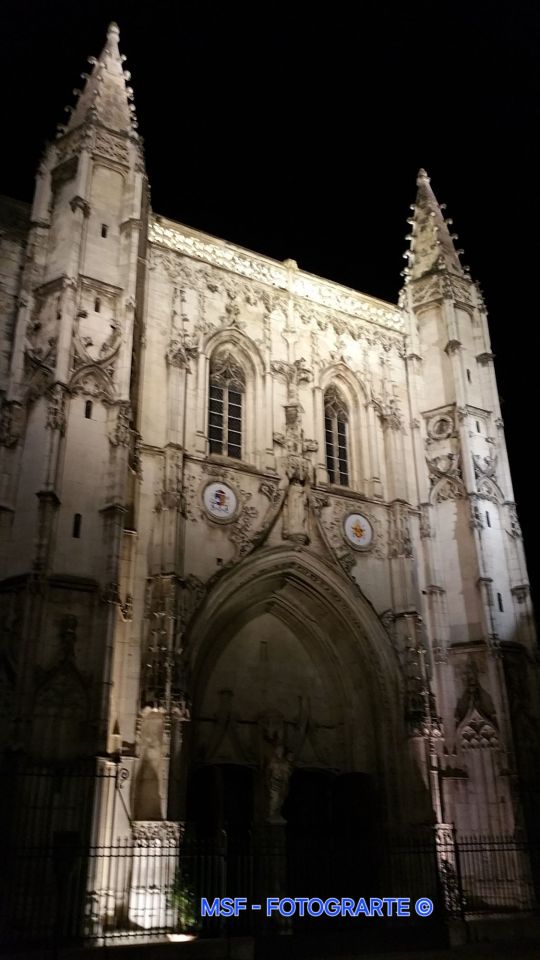
View On WordPress
#Antoine Volard#Arquitectura#Aviñón#Cardenal Pierre de Prés#Francia#Fundación Calvet#Gótico#Gótico flamígero provenzal#Iglesia de San Pedro de Aviñón#Michel Lopis#Nicolas Gasc#Nicolas Minard#Papa Benedicto XVI#Papa Inocencio VI#Parrocel#Perrin Souquet#Philippe Garcin#Pintura#Simon de Châlons
0 notes
Text
European and Middle Eastern Royals Travel to Abu Dhabi, UAE to Convey Their Condolences to the New Emir.
European and Middle Eastern Royals Travel to Abu Dhabi, UAE to Convey Their Condolences to the New Emir.
On Monday, May 16, 2022, His Majesty King Felipe VI of Spain, His Majesty King Philippe of Belgium, and His Royal Highness The Duke of Cambridge traveled to Abu Dhabi, United Arab Emirates to convey their condolences to the new Emir of Abu Dhabi and President of the State of the United Arab Emirates, His Highness Sheikh Mohamed Bin Zayed Al Nahyan. Sheikh Mohamed Bin Zayed Al Nahyan’s…

View On WordPress
#His Majesty King Felipe VI of Spain#His Majesty King Philippe of Belgium#HRH The Duke of Cambridge#UAE
0 notes
Text
Fictional Horse Tournament (FHT)
Starting list - Group Haley
#Group Haley propaganda
All media of origin are listed in parentheses and sorted in alphabetical order. Character names are not sorted in any order.
The Captain (101 Dalmatians)
James Baxter (Adventure Time)
Widow, Spider-Horse (Amazing Spider-Man, Spider-Verse, Vault of Spiders, Spider-Geddon, Marvel)
Amika (Amika)
Glory (A Song of Ice and Fire)
Honor (A Song of Ice and Fire)
Silver Mare (A Song of Ice and Fire)
Stranger (A Song of Ice and Fire)
Gaudior (A Swiftly Tilting Planet, Time Quintet)
Aurea (Aurea de wilde pony)
Philippe (Beauty and the Beast)
Jewel (Bella Sara)
Thunder (Bella Sara)
Bella (Bella Sara)
Fiona (Bella Sara)
Nike (Bella Sara)
Firewalker (Bella Sara)
Star (Bella Sara)
Arapaho (Bella Sara)
Lenape (Bella Sara)
Moonfairy (Bella Sara)
Starlight (Bella Sara)
Sunflower (Bella Sara)
Mustang (Bella Sara)
Elymyn (Bella Sara)
Pantheon (Bella Sara)
Amadeus (Bibi and Tina)
Sabrina (Bibi and Tina)
Black Beauty (Black Beauty)
Ginger (Black Beauty)
Merrylegs (Black Beauty)
Angus (Brave)
Kona (Breyer #100111, Wind Dancer)
Brisa (Breyer #100113, Wind Dancer)
Sirocco (Breyer #100112, Wind Dancer)
Sumatra (Breyer #100105, Wind Dancer)
Casey (Casey the Utterly Impossible Horse)
Horse (Centaurworld)
Major (Cinderella)
Rafal (De ontsnapping van Rafal)
Pipo (De Bleshof, Het eerste optreden)
Isobel (De Bleshof, Alles voor mijn paard)
Tjitske (De Bleshof, Een echt paardenmeisje)
Pepijn (De Bleshof, Pepijn is de allerliefste)
Pico (De zoektocht van Pico)
Galupy (Diddl)
Unimon (Digimon)
Binky (Discworld)
Susan, Joshua (Doctor Who, A Town Called Mercy)
Arthur (Doctor Who, The Girl in the Fireplace)
Rocinante (Don Quixote)
Mary Lou, Primrose (Dragon Quest IV: Chapters of the Chosen, Dragon Quest V: Hand of the Heavenly Bride)
Peggy Sue (Dragon Quest VI: Realms of Revelation)
Red Hare (Dynasty Warrior)
Leonard (Elden Ring)
Ixion (Final Fantasy X)
Kokuoh, 黒王, Kokuō (Fist of the North Star, 北斗の拳, Hokuto no Ken)
The Nokk (Frozen II)
54 notes
·
View notes
Text
Red like the Oriflamme
At various times in their histories, the kings of the Iberian Peninsula, of Scotland, of Poland, and especially of England also had coronation mantles in the color red, a symbol of their power and prestigious inheritance of antique purple. Only the kings of France, who were always asserting their difference from other monarchs, never wore such a mantle. We do not know in exactly what attire the first Capetian kings were coronated, but beginning with Philip Augustus crowned in 1179 while his father, Louis VII, was still alive, and until Charles X, lavishly crowned in 1825 according to the ritual of the Ancien Régime, that mantle was always d'azur semé de lis d'or. The azure, moreover, which was a relatively light blue in the seventh and eigth centuries, tended to become darker over the course of time and sometimes to take on purplish or crimson shades.
If French kings never wore red copes or mantles like the emperor and most other sovereigns, they did, on the other hand, make use of a red ensign for more than three centuries: the oriflamme. The legend of its origin makes it Charlemagne's standard, "of a vermilion color as sparkling as gold", The Song of Roland tells us. According to a more modest version, it was a matter of a simple feudal banner, cut from plain red cloth and belonging to the abbey of Saint-Denis. As the abbey could not wage war, it was represented in battle by an "avowed", the Count of Vexin, who, in rallying his troops, came to the abbey itself where the banner was kept to collect it. Philip I inherited the Vexin countship in 1077, and henceforth it was the kings of France who had the honor of bearing the oriflamme of Saint-Denis into battle. It seems that Louis VI, son of Philip I, was the first to actually do so, in 1124, and Louis XI did it for the last time during the Battle of Montlhéry in July 1465. A simple monochrome gonfalon of the feudal period, the oriflamme seems to have been given long flying tails during the Hundred Years War and sometimes to have been decorated with flowers, rings, flames, or small crosses. All these materials, objects, and practices underscore how the color red maintained direct ties with power in the medieval West, with sovereign power but also feudal power, and representative power.

Michel Pastoureau - Red, the History of a Color
#xi#xii#xiii#xiv#xv#michel pastoureau#red: the history of a color#the oriflamme#philippe i#louis vi#louis vii#philippe ii#philippe auguste#battle of montlhéry#louis xi#hundred years war#abbey of saint-denis
6 notes
·
View notes
Photo
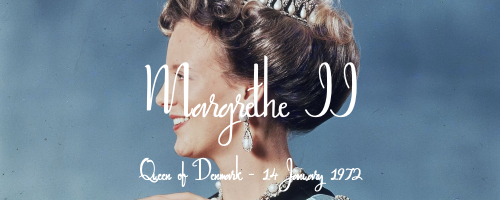
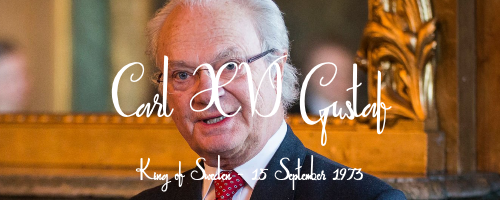
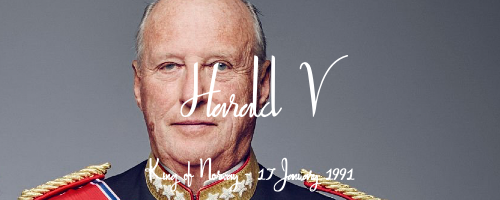




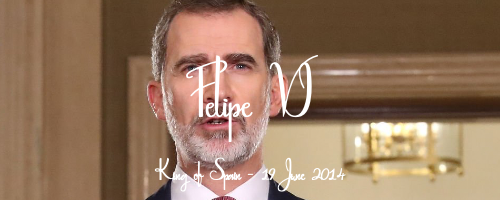
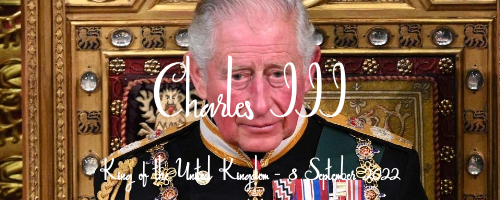
Monarchs of Europe (as of September 2022)
#and then there was one#also sorry Liechtenstein#Queen Margrethe#King Carl XVI Gustaf#King Harald#Grand Duke Henri#Prince Albert II#King Willem Alexander#King Philippe#King Felipe VI#King Charles III
356 notes
·
View notes
Text


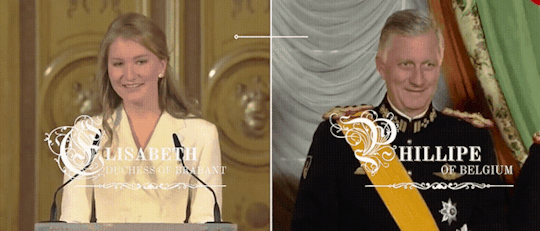



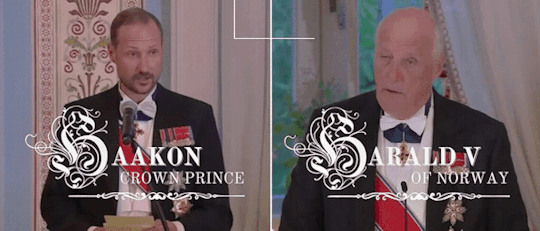



♚♛ EUROPEAN MONARCHS AND THEIR HEIRS ♛♚
───────────── ⋆⋅☆⋅⋆ ─────────────
♔ UNITED KINGDOM┆ King Charles III → William, The Prince of Wales → Prince George of Wales
♔ SPAIN┆King Felipe VI → Princess Leonor, The Princess of Asturias
♔ BELGIUM┆ King Philippe → Princess Elisabeth, Duchess of Brabant
♔ SWEDEN ┆ King Carl XVI Gustaf of Sweden → Crown Princess Victoria, Duchess of Västergötland → Princess Estelle, Duchess of Östergötland
♔ DENMARK ┆ Queen Margrethe II → Crown Prince Frederik → Prince Christian
♔ NORWAY ┆ King Harald V of Norway → Crown Prince Haakon → Princess Ingrid Alexandra
♔ LUXEMBOURG ┆ Grand Duke Henri → Hereditary Grand Duke Guillaume → Prince Charles
♔ NETHERLANDS┆ King Willem-Alexander → Princess Catharina-Amalia, Princess of Orange
♔ MONACO┆ Prince Albert II → Hereditary Prince Jacques, → Princess Gabriella, Countess of Carladès
#prince of wales#the prince of wales#prince william#prince george of wales#prince george#king charles iii#queen margrethe ii#crown prince frederik#prince christian#king harald v#crown prince haakon#princess ingrid alexandra#king carl xvi gustaf#crown princess victoria#princess estelle#king philippe#princess elisabeth#king felipe#princess leonor#grand duke henri#hereditary grand duke guillaume#prince charles of luxembourg#king willem alexander#princess catharina amalia#prince albert ii#prince jacques#princess gabriella#my gifs#my edit#european monarch and their heirs
311 notes
·
View notes
Text
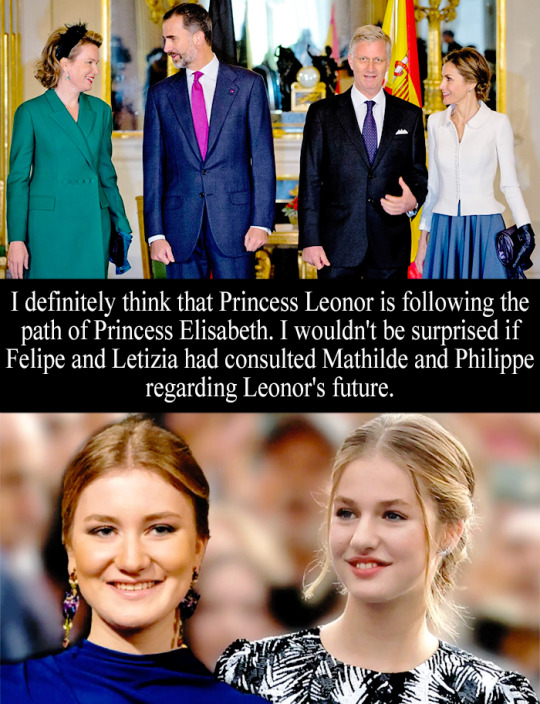
“I definitely think that Princess Leonor is following the path of Princess Elisabeth. I wouldn't be surprised if Felipe and Letizia had consulted Mathilde and Philippe regarding Leonor's future.” - Submitted by Anonymous
22 notes
·
View notes
Photo


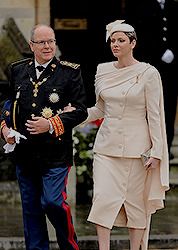


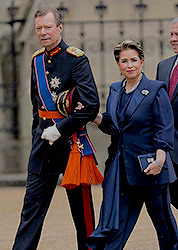
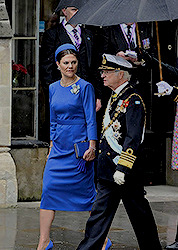
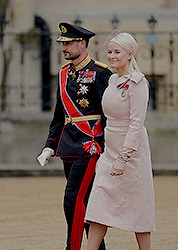

Members of the foreign Royal Families attended the coronation of King Charles III in Westminster Abbey, London. || May 6th, 2023
King Philippe & Queen Mathilde of the Belgians
Kinf Willem Alexander & Queen Maxima of the Netherlands
Prince Albert II & Princess Charlene of Monaco
King Felipe VI & Queen Letizia of Spain
King Abdullah II & Queen Rania of Giordan
Grand Duke Henri & Grud Duchess Maria Teresa of Luxembourg
King Carl XVI Gustav & Crown Princess Victoria
Crown Prince Haakon & Crown Princess Mette-Marit of Norway
Crown Prince Frederik & Crown Princess Mary of Denmark
#royaltyedit#crown princess mary#crown princess victoria#crown princess mette-marit#queen maxima#queen mathilde#queen letizia#grand duchess maria teresa#queen rania#princess charlene#edit#mine#Coronation23#danish royal family#swedish royal family#Norwegian Royal Family#spanish royal family#monegasque princely family#dutch royal family#belgian royal family#king felipe vi#King Carl XVI Gustaf#king philippe#crown prince frederik#crown prince haakon#king willem alexander#Prince Albert II
276 notes
·
View notes